PARTNERS
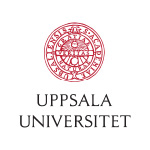
Uppsala University
Uppsala University is the highest-ranking comprehensive research university in Sweden and among the top 20 in Europe.
The University is represented by the Microsystem technology (MST) programme, which is a division of Dept. Materials Science and Engineering. They have a longstanding track-record in the materials science of MST, with specialization in novel materials and processing for MST. In recent years, much work has been on heterogeneous microsystems with ceramics, steel, polymers and glass/silicon. The devices have most often been sensors and actuators for microfluidics but in recent years more work has been on stretchable microsystems. They are among the world leaders in soft PCB technology and in manufacturing of ultra-lowpower MOS chemical sensors.
MAIN TASKS IN THE PROJECT
- Project Coordinator
- Leader of Work Packages 1, 2 and 5
- Leader of Task 8.4 Clustering and Networking and 8.5 Training
In technology, UU will mainly work on the soft PCB technology with hybrid assembly, as well as on ultra-low-power MOS chemical nanowire sensors.
Uppsala University will actively support Mycronic in IPR Management activities.
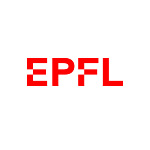
EPFL | Ecole Polytechnique Fédérale de Lausanne
EPFL is recognized as one of the top-ranked institutions in the world for teaching, research and technological impact. International rankings regularly place EPFL among the world’s top schools in the fields of basic sciences, engineering and technology: the Times Higher Education 2018 ranking places the EPFL as 5th in Europe and 18 in the world in Engineering and Technology. EPFL is located in Switzerland. Its main Lausanne campus brings together over 14,000 people – students, researchers and staff.
Within EPFL, one leading laboratory participates in the project: the Soft Transducers Laboratory (EPFLLMTS), widely known for its expertise in soft robotics and soft actuators.
MAIN TASKS IN THE PROJECT
The main task for the EPFL-LMTS is developing the soft locomotion systems for the compliant robot. They will design and then fabricate linked artificial muscles based on electrostatic principles to create travelling waves in soft thin fins on each side of the robot.
They will develop the electrostatic actuators, the synchronization and control algorithms, as well as very compact and high-efficiency power conversion circuitry to drive the artificial muscles.
They will work closely with all partners to co-develop actuators, electronics and architecture that allows for a highly-integrated energy-autonomous mobile soft robot.
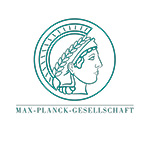
Max-Planck-Gesellschaft
The Max Planck Society is Germany’s most successful research organization. Since its establishment in 1948, no fewer than 18 Nobel laureates have emerged from the ranks of its scientists, putting it on a par with the best and most prestigious research institutions worldwide. The currently 86 Max Planck Institutes and facilities conduct basic research in the service of the general public in the natural sciences, life sciences, social sciences, and the humanities. Max Planck Institutes focus on research fields that are particularly innovative, or that are especially demanding in terms of funding or time requirements. The goal of the Max Planck Institute for Intelligent Systems is to investigate and understand the organizing principles of intelligent systems and the underlying perception-action-learning loop. The Max Planck Institute for Intelligent Systems combines – within one centre – theory, software, and hardware expertise in the research field of intelligent systems.
The Physical Intelligence Department, founded by Metin Sitti, participate in SOMIRO project. The department started its research activities in the fall of 2014 at the Max Planck Institute for Intelligent Systems and it aims to understand the principles of design, locomotion, control, perception, and learning of single and large numbers of small-scale mobile robots made of smart and soft materials as our physical intelligence platforms.
MAIN TASKS IN THE PROJECT
- Modelling and design of locomotion motion
- Locomotion characterization
- Overall robot characterization
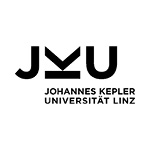
Johannes Kepler University
The Johannes Kepler University (JKU) is a public university in Linz (Austria). JKU is a leading research-focused higher education institution. The Faculty of Engineering and Natural Sciences was established in 1969, currently holding more than 60 institutes in mathematics, computer science, chemistry, mechatronics and physics. Research in the faculty is coordinated within the Linz Institute of Technology and three excellence clusters. The Soft Matter Physics Department (SoMaP) within the Faculty of Engineering and Natural Sciences of the JKU was founded in 2002, the Soft Materials Labwithin the Linz Institute of Technology in 2019. The research focus of the team is on flexible, stretchable and imperceptible electronics, photovolatics, transducers, soft batteries and combinations of electronics, transducers and batteries to stand alone soft electronics and soft machines for biomimetic and bioelectronic applications. Dielectric Elastomer Actuators, Generators and Soft Sensors in Soft Robotics are core competences. The teams follow the “Let’s get practical” research philosophy, where basics science problems advance from applied research questions. The groups are internationally recognized in these fields with multiple awards and competitive research ERC grants, hot and highly cited papers in major research journals.
MAIN TASKS IN THE PROJECT
JKU will develop a miniature, micrometre-thin solar panel based on perovskite or organic PV technology with more than 20 W/g specific power capable of operating in humid environments. The power module will deliver the required energy to autonomously operate propulsion, sensing, communication and local intelligence.

Fundación IMDEA Networks
IMDEA Networks is an international research institute located in Madrid, with the objective of performing worldclass research, carrying out technology transfer and attracting talented researchers to the region of Madrid, Spain. IMDEA is funded by the Regional Government of Madrid, other public bodies and private institutions. Its key expertise broadly lies in the areas of wireless networking, networked systems and algorithms, and energy-efficient networking. IMDEA Networks offers an interdisciplinary environment encompassing about 50 staff members including faculty staff, postgraduate associates, PhD students, Master’s students and research interns/engineers. IMDEA researchers consistently publish in top journals
and conferences in their respective fields.
The Pervasive Wireless System group at IMDEA is involved in SOMIRO project: it has strong expertise in embedded visible light communication systems and the group leads the OpenVLC project, an open source initiative for performing research in the area.
MAIN TASKS IN THE PROJECT
- WP6 leadership on Communication: Investigate and develop a bi-directional communication system based on visible light communication operating under extreme power constraints.
- Task leadership on sensing within WP5: contribute to the parameters readout and front-end circuitry.
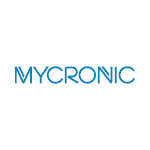
Mycronic AB
Mycronic AB is a Swedish high-tech company engaged in the development, manufacture and marketing of production solutions to the electronics industry. The company has almost 1000 employees of which approximately half are located in Sweden. The development of commercially viable products is of primary importance for the company. The formulation of the company’s development roadmap is dependent on the active surveillance of the needs of our customers and the trends of existing and developing markets, as well as an attempt by the organization to foresee disruptive developments. An important part of this process is to partake in academic partnerships and follow what is happening at the forefront of academic research. One of these areas is understanding and partaking in the development of new pick-and-place and material deposition strategies that will be used in the electronics industry
MAIN TASKS IN THE PROJECT
Mycronic is an original equipment manufacturer (OEM) focused on surface mount production of electronic devices and as such has the focus of studying the production of the soft, flexible millirobots proposed in the project. Production will be focused on industrial viability and include existing technologies in known and sometimes novel applications.
Mycronic will also be involved in information dissemination with respect to the work performed in the project.
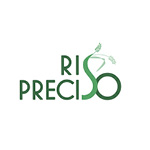
Riso Preciso
Riso Preciso is farm run as family businesses since 1850. For about 10 years, Riso Preciso started implementing the innovative agronomic strategies called Precision Agriculture: i.e.: “apply the right treatment in the right place at the right time”. Riso Preciso was in fact pioneer in their area on applying information technologies which helped the farm to optimize production efficiency and increase quality, but also minimize environmental impact and risk. Precision Agriculture nowadays is seen as an “environment friendly system solution that optimizes product quality and quantity while minimizing cost, human intervention and the variation caused by unpredictable nature”.
Precision Agriculture technology applied by Riso Preciso consisted on the implementation on their machines of the harvest monitoring system, which provides localized harvesting information (instant wet and dry readings, crop density, cutting and harvesting and information about yield), automatic driving machine, which helps avoid overlapping following same tracks automatically for every field operation, and by optimizing the procedures reduce the use fuel.
Within SOMIRO project Riso Preciso will test the introduction of robotic elements. In fact, Soft-Milli-Robots developed in SOMIRO will assist the real-time measurement for the monitoring of several parameters.
MAIN TASKS IN THE PROJECT
Riso Preciso will be engaged in SOMIRO project as end-user for testing the application of the swimming robots which will help to dynamically monitor and measure important parameters in the rice field such pH, temperature, detection of pollutants (e.g. heavy metals).
Riso Preciso will be involved for the definition of the system integration and testing parameters that have to be taken in account in order to evaluated the swimming Soft-Milli-Robots.
Riso Preciso will bring their expertise in the field of rice farming to the project. They will support by providing the rice paddy field and the experience and experimentation with the agronomic and technological skills of each component of the company.

The Circle
The Circle is an agricultural company with a wealth of technological content. It has created a sustainable and competitive development model to produce food and energy without any negative impact on the environment.
The farm is now composed on two hectares of land, just outside Rome. 2800 s/m2 of fully sustainable greenhouses were established in a vineyard nestling in the countryside. It offer extremely high top quality products, cultivated in a completely innovative manner with innovative and eco – friendly technology. To do this, it use an aquaponic system: an agricultural technology that pairs aquaculture and hydroponic farming. This technology guarantees higher yields and more rapid growth in the plants under cultivation. In aquaponics, water circulates from the fish tanks to the plants, fertilizing them, and the cleansed water is then channeled back to the fish. This makes it possible to recover all the water that the plants are unable to absorb; water consumption is thus reduced by 90% per kg of product compared to traditional agriculture.
MAIN TASKS IN THE PROJECT
The Circle will be engaged in SOMIRO project as end-user for the swimming robots which will help to dynamically monitor and measure different nutrients and parameters in the aquaponics system.

Warrant Hub S.p.A.
Warrant Hub S.p.A. – Tinexta Group is a privately held consultancy services company that provides full spectrum consulting in business finance. Warrant Hub has been active since 1995, growing over the years to become a leader in its sector today. WH Business Units work in synergy with its Innovation Lab to give their clients the best support tools for the success of their business initiatives and to assist them in the preparation and management of strategic projects: business projects, research projects, training and technology transfer activities, under National and International support frameworks.
The European Funding Development (EFD) team will be involved in SOMIRO project. It’s aim is to provide consultancy, training and support on European Funding opportunities, and in the preparation, negotiation and management of European Proposals, particularly on H2020 calls. EFD offers also support for communication and dissemination activities, and periodically participates into and organizes sectional seminars and networking events with/for industrial associations, SMEs, policy makers, etc. thus having the opportunity to disseminate the project results to relevant audiences.
MAIN TASKS IN THE PROJECT
Warrant Hub will be the Project Manager, providing support to the Project Coordinator for administrative and legal management, consortium management, project monitoring, periodic reporting as well as risk management. Warrant Hub will coordinate the dissemination and exploitation activities: it will be responsible of the project website, the communication materials and the coordination of communication actions, as well as organizing targeted events.
